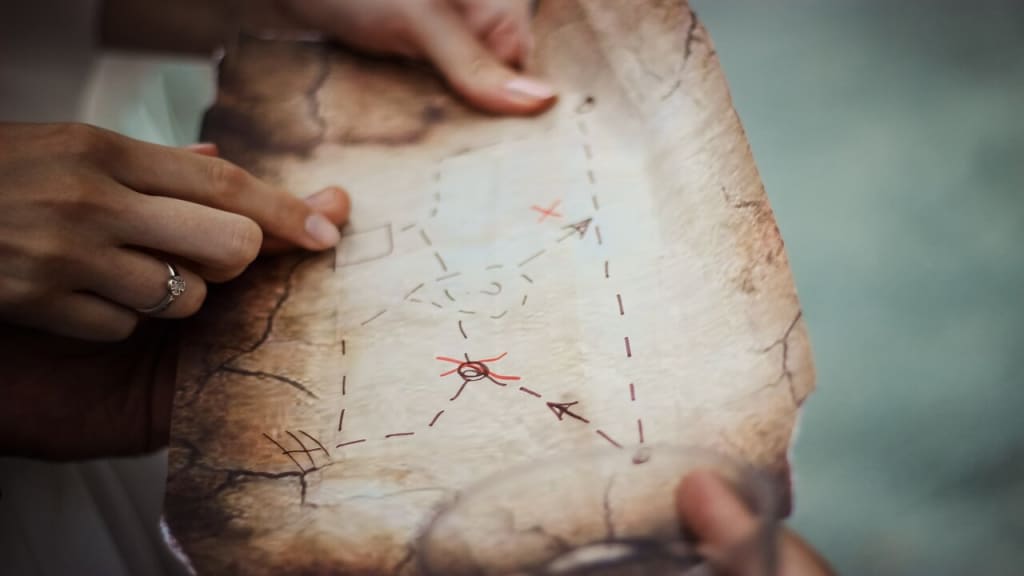"Whispers of the Forgotten: Rediscovering Lost Tales"
Know Your Real History

Stories have been an integral part of human culture since the dawn of time, weaving the fabric of our societies and helping us make sense of the world around us. However, not all tales have survived the test of time. Countless stories have been lost or forgotten over the centuries, leaving gaps in our collective memory and cultural heritage. This article explores the allure of rediscovering lost tales, delving into the historical context of why some stories are lost, the art of rediscovery, and the impact of forgotten stories on society. Join us on a journey to uncover the secrets of the past and preserve the stories that make us who we are.
Introduction: The allure of forgotten stories
Something is captivating about stories that have been lost to time. Perhaps it's the mystery of what has been forgotten or the feeling of uncovering a hidden gem. Whatever the reason, rediscovering lost tales can be a thrilling adventure. In this article, we'll explore why some stories are lost, and techniques for uncovering them, and showcase some recently rediscovered tales that have captivated audiences around the world.
Historical context: Why some tales are lost over time
The transient nature of oral traditions
For centuries, many cultures relied on oral traditions to pass down stories from generation to generation. While this was an effective method of storytelling, it also meant that many tales were lost over time. Stories were vulnerable to the passage of time and the vagaries of human memory and interpretation. As each new generation told these stories, they would inevitably change, evolve, or, in some cases, disappear.
The Impact of political upheaval and Colonization
Another reason why stories might be lost is due to political upheaval and colonization. When a culture is subjugated or forced to assimilate into another culture, its stories and traditions can be lost. This was the case for many indigenous cultures around the world, whose stories were suppressed or forbidden by colonizing forces.
The Art of Rediscovery: Techniques for uncovering forgotten tales
Conducting archival research
One way to uncover lost tales is through archival research. This involves combing through old manuscripts and documents to find references to stories that may have been lost. Many libraries and archives around the world have collections of old manuscripts, letters, and other documents that may contain references to lost stories.
Exploring unconventional sources
Another way to uncover lost tales is by exploring unconventional sources. This can include talking to elders in the community, searching for obscure references to stories in other texts, or even examining old pieces of art or pottery for clues. In some cases, lost stories have been preserved in unexpected places, and it's up to the intrepid researcher to find them.
Hidden Gems: A showcase of recently rediscovered stories
The rediscovery of lost African American folktales
In 2017, a collection of African American folktales was published for the first time. Titled "The Annotated African American Folktales," the collection includes stories that had been lost for generations. The stories were originally collected by researchers during the 1930s as part of the Federal Writers' Project. However, the collection was never published, and the stories were believed to have been lost. Thanks to the efforts of scholars, the stories were rediscovered and are now available for modern readers to enjoy.
The revival of ancient Mesopotamian myths
In recent years, there has been a renewed interest in the myths and stories of ancient Mesopotamia. Thanks to the discovery of new tablets and the tireless efforts of scholars, many lost stories have been rediscovered. These stories, which date back thousands of years, provide a fascinating glimpse into the beliefs and values of ancient civilizations. They also remind us that no story is truly lost and that with enough effort, even the most ancient tales can be unearthed and enjoyed once again.
The importance of preservation: Ensuring the survival of cultural heritage
Stories have always been an integral part of human culture. They've been passed down from generation to generation, educating and entertaining us while providing a glimpse into our past. It's important to preserve these stories, as they are a part of our cultural heritage, shaping our identity and guiding us into the future. However, many of these stories are at risk of being lost forever due to neglect, natural disasters, or human actions.
The Role of Technology in preservation efforts
Technology can play a pivotal role in preserving our cultural heritage by providing opportunities to digitize, store, and share these stories. For instance, virtual museums and digital libraries provide easy access to historical documents and artifacts from around the world. Similarly, digital storytelling tools allow us to record and share the oral traditions of our communities, creating a legacy for future generations.
Preserving oral traditions in indigenous communities
Indigenous communities have been using oral traditions to preserve their history, culture, and beliefs for centuries. These stories are like a map that guides them in their everyday lives. However, with the ongoing threats to their culture, including colonization, modernization, and urbanization, these stories are at risk of being lost forever. Preserving oral traditions in indigenous communities is critical not only for the preservation of their culture but also for gaining a deeper understanding of the world and our collective human experience.
The impact of forgotten stories on society: The consequences of losing our narratives
The loss of these stories can have far-reaching consequences, impacting our sense of identity, connection to our past, and understanding of the world. Here are two significant consequences of losing our narratives:
The erosion of cultural identity
Our cultural stories and traditions serve as a bridge connecting us to our past, our history, and our identity. Without these stories, we lose an important part of ourselves, leading to the erosion of our cultural identity.
The Danger of Historical Amnesia
The loss of historical memory can have a profound impact on our understanding of the world. When we forget our past, we lose the context that helps us understand our present and future. Historical amnesia leads to a lack of appreciation for diversity, cultural values, and traditions, which can lead to intolerance, ignorance, and conflict.
Conclusion: The ongoing quest to uncover and preserve lost tales
Preserving our cultural heritage is an ongoing quest that requires a collective effort from all of us. We must recognize the value and importance of these stories, not only for our identities but also for our global community. By utilizing technology, supporting indigenous communities, and advocating for the preservation of our cultural heritage, we can ensure that these stories continue to be whispered and passed down to future generations. As we continue to uncover the hidden gems of our cultural past, it becomes increasingly clear that the preservation of our stories is essential to understanding and appreciating the diversity of the human experience. From the ancient myths of Mesopotamia to the forgotten folktales of African American communities, each story adds a unique thread to the tapestry of our history. Let us continue to explore the art of rediscovery and strive to keep alive the tales that have been lost to time, ensuring that they remain a vital part of our cultural heritage for generations to come.
FAQ
Why are some stories lost over time?
Stories can be lost for a variety of reasons, such as the transient nature of oral traditions, the impact of political upheaval and colonization, or the simple passage of time. Wars, natural disasters, and cultural changes can all contribute to the loss of stories that were once cherished by a particular community.
How do we go about rediscovering lost tales?
Rediscovering lost tales can be a challenging and complex process. Researchers may need to conduct extensive archival research, explore unconventional sources, or collaborate with members of the communities where the stories originated. Technology can also play a role in rediscovery efforts, such as using digital tools to analyze linguistic patterns in ancient texts.
Why is it important to preserve our cultural heritage?
Preserving our cultural heritage allows us to better understand and appreciate the diversity of human experience. Our stories, traditions, and artifacts provide insight into the beliefs and values of different communities throughout history. Without this preservation, we risk losing important parts of our collective memory and cultural identity.
What can be done to ensure the survival of lost tales?
There are many ways to ensure the survival of lost tales, such as supporting preservation efforts at the local, national, and international levels, investing in education and training for future generations of researchers and archivists, and leveraging technology to document and disseminate cultural heritage. Ultimately, it is up to us to recognize the value of our stories and take action to protect them for posterity.
About the Creator
Corey Turner
Reading really is fundamental






Comments
There are no comments for this story
Be the first to respond and start the conversation.